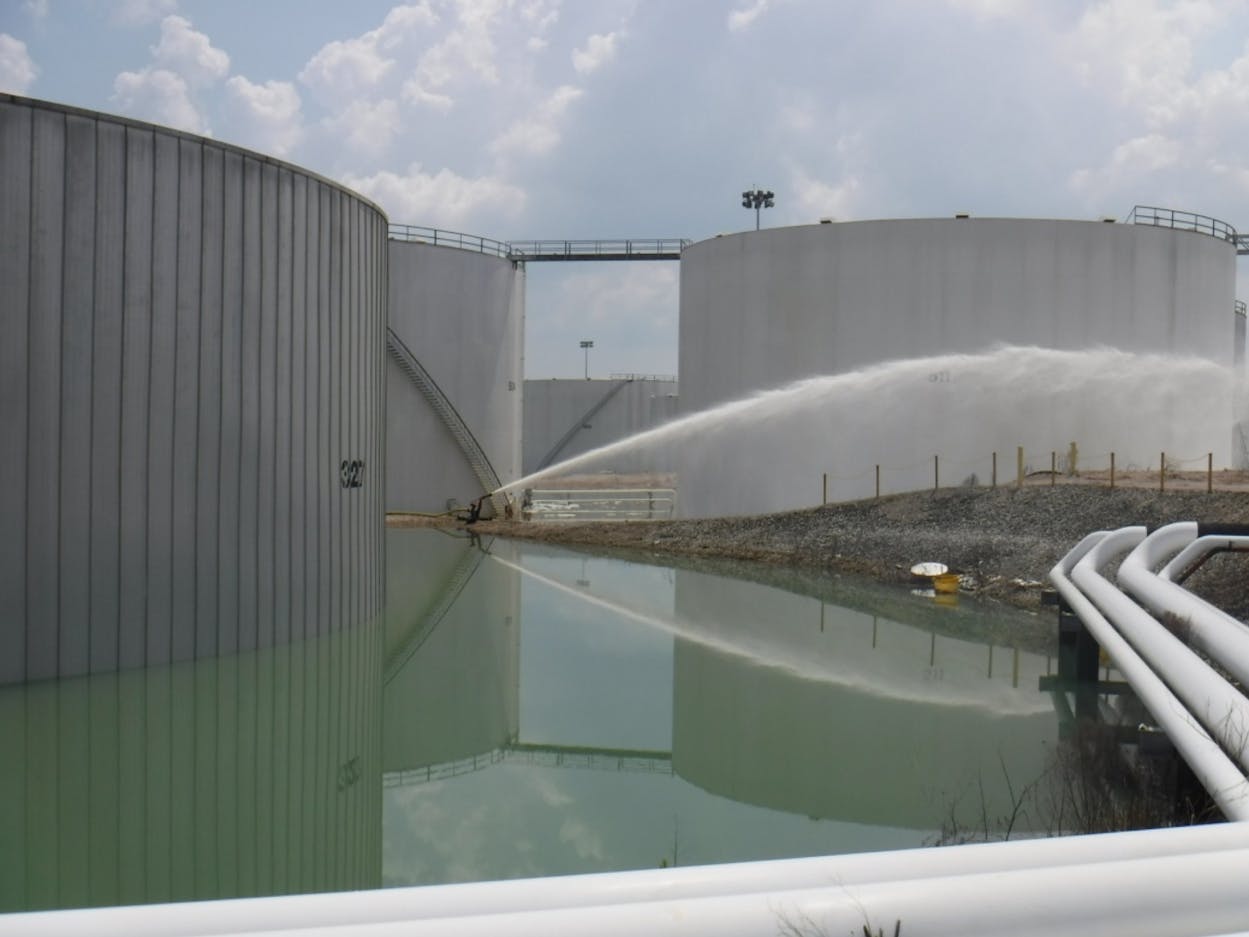This article has been updated to reflect the date for Magellan’s update about the volume of the spill. This occurred on September 11, not September 5, as originally published. This article has also been updated to correct the mischaracterization of the gasoline spill as an oil spill. We regret the errors.
On August 31, floodwaters from Hurricane Harvey triggered a gasoline spill at a Magellan Midstream Partners facility near the Houston suburb Galena Park. According to the Houston Chronicle, when workers first noticed gasoline leaking from two fuel tanks, they evacuated the area, called 911, and notified federal and state agencies of the spill. A statement by Magellan on September 1 states that “clean-up work and inspections continue at the partnership’s Galena Park marine facility, but a restart timetable is not yet available,” but makes no mention of the size of the leak.
An initial estimate of the amount of the spill was 1,000 barrels of gasoline. It wasn’t until weeks later, on September 11, that Magellan reported that the spill amount actually totaled 11,000 barrels, or 460,000 gallons, making it the largest Harvey-related gasoline spill. The lack of accurate available information on the spill was most distinctly felt in Galena Park, where the Houston Chronicle reports that for weeks, residents were disturbed by the strong smell of gasoline in the air—one resident described it as an “extreme stench”—that they couldn’t escape, but that they also weren’t sure of its source. Residents were shutting up their doors and houses to try to keep out the odor, which was so strong it caused their eyes to burn when they went outside.
“It was a heavy smell, and it even carried inside our house,” Jesse Perez told the Chronicle. “We had to put air fragrances in the rooms just to air out the house.”
Without accurate information on what could be the causing the odor, Perez said he wondered if the smell was coming from the Arkema chemical plant in Crosby, even though it was too far away. Magellan claims that employees weren’t able to accurately assess the amount of the spill until days later:
Magellan spokesman Bruce Heine said the company initially gave a conservative estimate of the leaked volume, but that the “unprecedented flood water” from Harvey hindered Magellan’s access to the equipment and the true volume of the spill. Magellan actually thought it had overestimated the volume because only a “relatively small visible sheen” was seen on the contained water, Heine said.
The Chronicle reports that it took weeks for federal and state agencies to inform the public about the scope of the spill:
Both the Railroad Commission and Commission on Environmental Quality said they were aware of the spill, but did not publicize it. The Railroad Commission said it did not include the Galena Park release on its list of spills attributed to Hurricane Harvey because it was within the jurisdiction of other agencies.
In a statement published Monday by the United States Public Interest Research Group, the group criticizes the slow release of information about the spill. Their primary concerns are the potential hazards of an unreported spill of that magnitude, namely contaminated water that could get into Houston Ship Channel, get into drinking water, and harm those cleaning up in the floodwaters.
The Environmental Protection Agency stated that most of the gasoline spill didn’t get into nearby waterways, although a small amount spilled into the Houston Ship Channel. The EPA also reported that they don’t anticipate any environmental or health concerns from the spill.
Cleanup efforts at the Galena Park terminal were underway when the area became accessible and has involved the efforts of the Commission on Environmental Quality, the Coast Guard, the Texas General Land Office, and the EPA. “One [step] included firefighting foam sprayed over the top of the product to prevent harmful vapors,” Heine told Houston Public Media. “And the other was to use containment devices. We not only contained but recovered the product that got into the Ship Channel.”
- More About:
- Energy
- Hurricane Harvey








